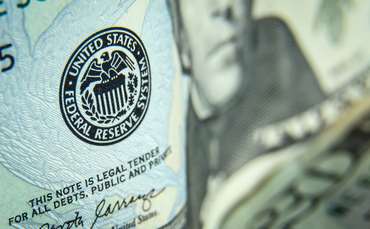The Bureau of Labor Statistics reported today (12 October) that core inflation, which excludes food and energy, saw its sixth consecutive month of decline, falling from 4.3% in August to 4.1% last month, its lowest figure since September 2021.
Meanwhile, the cost of shelter continued to be a key driver of inflation, rising 0.6% throughout the month and accounting for over half of the increase in prices overall.
After the spike in energy prices throughout August, September saw a return to lower levels of monthly energy inflation at 1.5%, compared to 5.6% in the previous month.
US inflation jumps to 3.7% in August due to gasoline price spike
Other contributors to the increase included motor vehicle insurance, recreation, personal care and new vehicles, while apparel and used cars and trucks declined.
Richard Flynn, managing director at Charles Schwab UK, said that while the lack of a fall in inflation may be "disappointing" for the Federal Reserve, it was "not surprising" due to last week's jobs report, which showed the US labour market remains hot.
"As for how this will impact interest rates, at this point, 'higher-for-longer' may be more important than 'how high?', he added.
"Whether or not the Fed opts for hikes, it is unlikely we will see rates drop below where they are for as long as the inflation dragon proves difficult to slay."
Lindsay Rosner, head of multi-sector fixed income investing at Goldman Sachs Asset Management, said the data boosted the argument that the end of the hiking cycle was approaching, which she added had been "supported by recent Fed speak and the recent tightening in financial conditions".
Mixed reactions as US jobs growth surges but unemployment stalls in September
"It is likely inflation will surprise the Fed to the downside in 2023, boosting its confidence that monetary policy has been sufficiently restrictive," she said.
Meanwhile, Neil Birrell, CIO at Premier Miton Investors, said the last US inflation report before the Fed's meeting later this month "should not give them too much of a headache".
"The core rate for September came in as expected and this will allow the Fed to proceed carefully from here. Overall, the economy remains robust in the face of tighter policy, supported by the jobs market," he said.
"Those looking for a soft landing will not be disappointed by this number, but they will not want to see it moving any higher."


